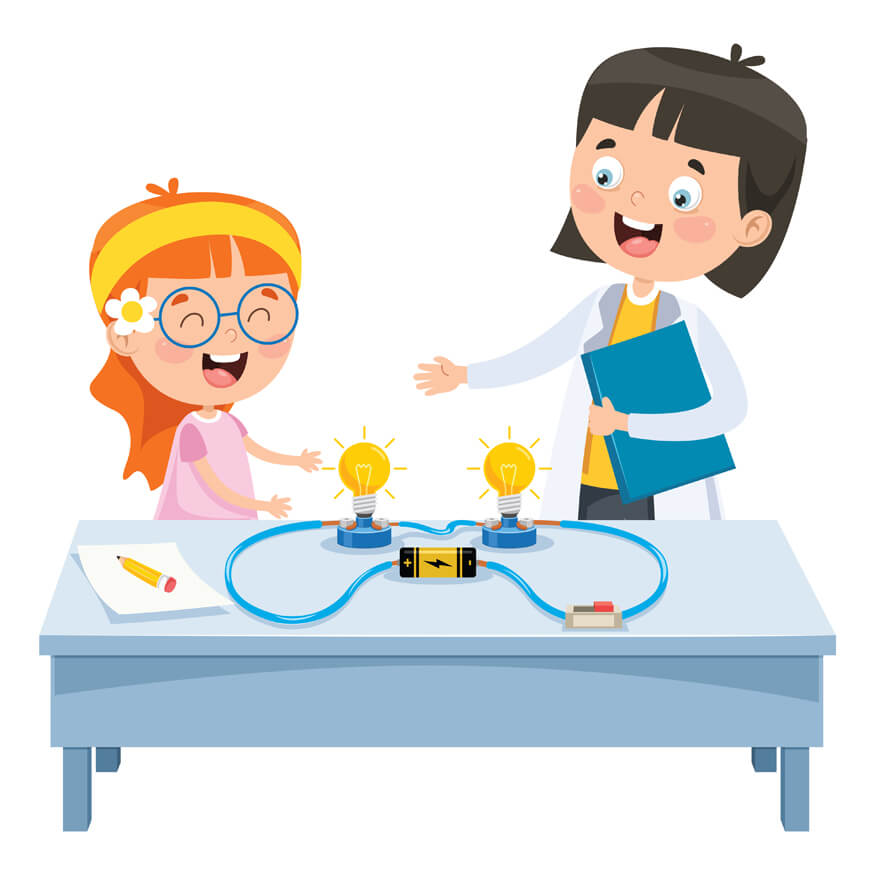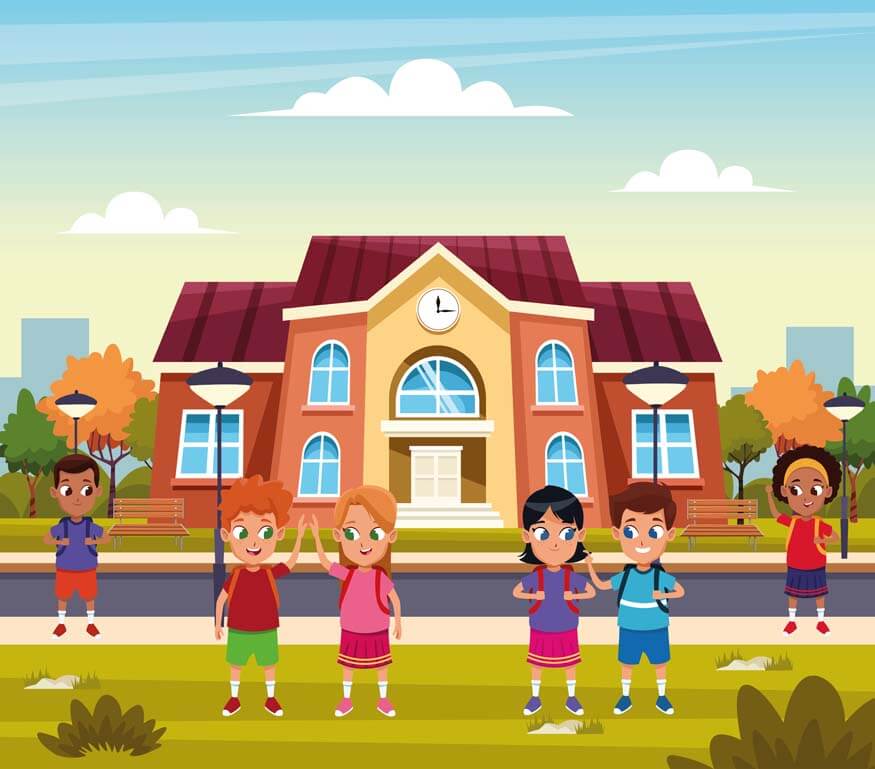Engaging children in enjoyable scientific activities at home not only entertains them but also helps in their overall development. These activities encourage curiosity, critical thinking, problem-solving abilities, and an interest to learn. In addition, science activities inspire creativity, exploration, and a feeling of wonder and discovery.
This approach to experiential education expands children’s understanding of their surroundings and promotes their natural curiosity, setting the groundwork for their future educational and personal growth. Today we will explore the fun and cool science experiments for kids and the benefits of fun science activities.
Also Read: Smart ways to introduce science to your toddler
Fun Science Activities for Preschoolers:
Here are 15 exciting and fun science activities for preschoolers:
- Sink or Float:
- Colourful Celery Experiment:
- Ice Excavation:
- Oobleck Exploration:
- Magnetic Exploration:
- Nature Scavenger Hunt:
- Shadow Tracing:
- DIY Rainbow:
- Exploring Magnifying Glasses:
- Rainbow Milk Art:
- Nature Prints:
- Dancing Raisins:
- Rainbow Walking Water:
- Balloon Rocket:
- Nature Sensory Bins:
Gather a variety of objects, such as a toy car, a feather, a wooden block, and a plastic bottle. Let preschoolers predict whether each item will sink or float in a tub of water. Then, experiment and observe the results, discussing the concept of buoyancy.
Place a celery stalk in a cup of water with a few drops of food colouring. Over time, preschoolers can observe how the celery absorbs the coloured water, leading to a change in its colour.
Freeze small toys or objects in a large ice block. Provide preschoolers with tools like spoons and pipettes to melt the ice and reveal hidden treasures. This activity introduces concepts of freezing, melting, and temperature.
Mix cornstarch and water to create oobleck, a fascinating non-Newtonian fluid. Preschoolers can squeeze, pour, and play with it, observing its unique properties of being both a liquid and a solid.
Give preschoolers magnets and various objects made of different materials. Let them explore and determine which items are attracted to the magnet. This activity introduces the concept of magnetism.
Take preschoolers on a nature walk or in your backyard to search for specific natural items, such as leaves, rocks, flowers, or insects. Discuss the different characteristics and properties of the items found.
On a sunny day, place objects on a sheet of paper and trace their shadows. Preschoolers can observe how the position of the sun affects the length and direction of the shadows, providing an introduction to concepts of light and shadows.
One of the amazing fun science activities for kindergarten is to fill a glass with water and place it near a window where sunlight passes through. Encourage preschoolers to hold a mirror in the water and observe the reflection, creating a mini rainbow effect.
Provide preschoolers with magnifying glasses and encourage them to explore their surroundings, examining objects up close. This activity promotes observation skills and helps preschoolers appreciate the details of the world around them.
Rainbow milk art is interesting fun science activities for kindergarten. Pour a shallow dish of milk and add drops of different coloured food colouring. Then, let preschoolers touch the milk with a cotton swab dipped in dish soap. They will witness an intriguing reaction as the colours swirl and mix due to the interaction between the soap and the fat molecules in the milk.
Place leaves, flowers, or other natural items on a piece of paper. Encourage preschoolers to gently rub crayons or pastels over the objects to create prints, allowing them to explore textures and patterns found in nature.
Drop a few raisins into a glass of clear carbonated water or soda. Preschoolers can observe how carbonation causes the raisins to move and dance in the liquid, exploring the concept of gas release.
Set up three empty glasses in a row and fill one with water and food colouring. Use paper towels to connect the glasses, placing one end in the coloured water and the other in the empty glass. Over time, preschoolers can witness the water “walking” up the paper towels and filling the empty glasses, creating a colourful display.
Attach a string across a room and thread a straw through it. Blow up a balloon and tape it to the straw. When the balloon is released, it propels the straw, creating a mini rocket. Preschoolers can observe the principles of thrust and motion in action.
Create sensory bins filled with natural materials like sand, rocks, leaves, or pinecones. Preschoolers can explore the textures, shapes, and smells of these materials, stimulating their senses and encouraging tactile exploration.
Also Read: Science Experiments Every Primary Student Should Know
Benefits of fun science activities for kindergarten kids:
Engaging kindergarten kids in cool and fun science experiments offers numerous benefits for their development and learning. Here are some key advantages:
Stimulates Curiosity:
Science experiments captivate children’s curiosity, encouraging them to ask questions, explore, and seek explanations for the world around them. This curiosity-driven approach fosters a love for learning and promotes a lifelong interest in science.
Develops Critical Thinking Skills:
By conducting science experiments, kindergarten kids develop critical thinking skills as they observe, make predictions, analyse results, and draw conclusions. They learn to think logically, solve problems, and develop a scientific mindset.
Encourages Observation and Investigation:
Science experiments promote the development of observation skills as children closely observe changes, patterns, and outcomes during the experiments. They also learn to investigate and explore the factors that influence results.
Promotes Scientific Method:
Engaging in science experiments introduces kindergarten kids to the scientific method, teaching them the importance of making hypotheses, conducting experiments, collecting data, and drawing conclusions. They learn about the systematic process of inquiry.
Enhances Motor Skills:
Many science experiments involve manipulating materials, measuring, pouring, and mixing. These activities develop fine motor skills, hand-eye coordination, and manual dexterity in kindergarten kids.
Encourages Collaboration and Communication:
Science experiments often involve group work, promoting collaboration, teamwork, and effective communication among kindergarten kids. They learn to share ideas, work together, and express their thoughts and findings.
Sparks Creativity and Innovation:
Engaging in science experiments stimulates creativity and innovation. Kindergarten kids are encouraged to think outside the box, come up with new ideas, and explore unique solutions to problems.
Builds Confidence:
Successfully conducting science experiments and achieving desired outcomes boosts the confidence of kindergarten kids. They gain a sense of accomplishment, develop a positive attitude toward learning, and become more willing to take on challenges.
Fosters a Love for Science:
Cool and fun science experiments at a young age lay the foundation for a lifelong passion for science. Kindergarten kids develop an appreciation for the natural world, gain exposure to scientific concepts, and cultivate a positive attitude towards science learning.
Also Read: Science Stream Career Options after 10th & List of Courses after 12th
Conclusion:
At EuroSchool, we believe that introducing preschoolers to science through engaging and interesting activities not only entertains them but also helps them develop cognitively, motorically, and socially. These cool science experiments are for kids to develop observation, critical thinking, and imaginative play. These activities help preschoolers’ overall development and prepare the path for a future filled with learning and adventure.










